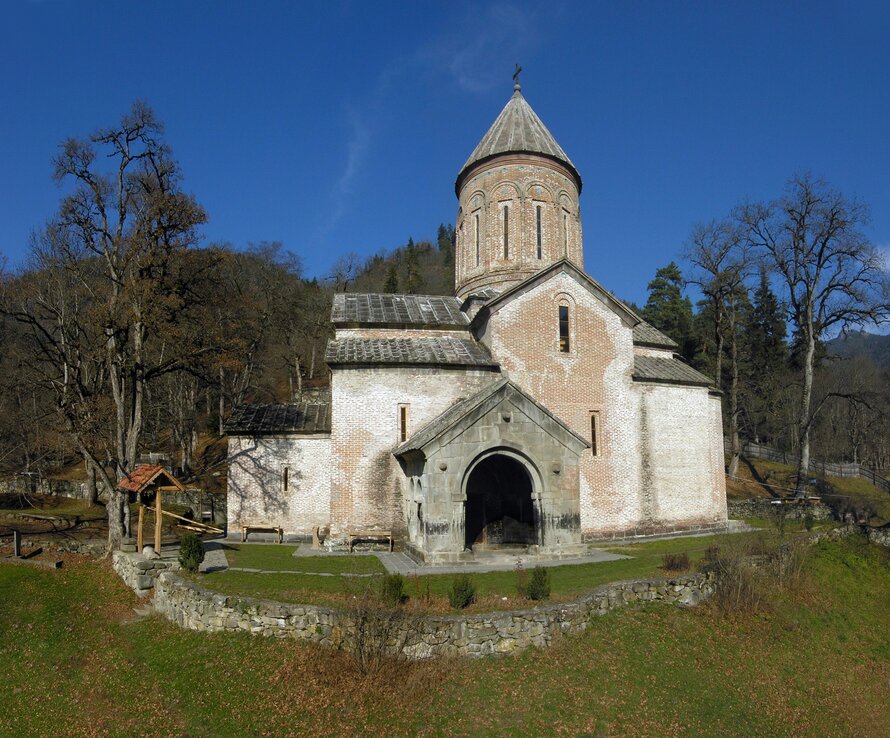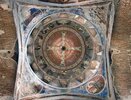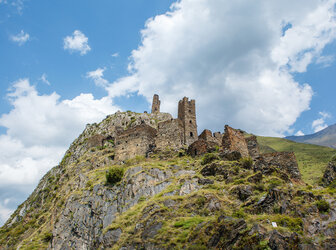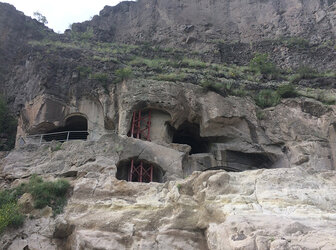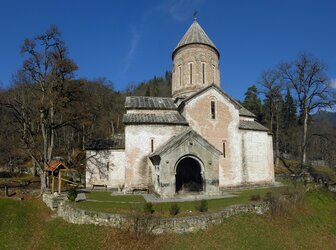The Church of the Virgin, Timotesubani
The Church of the Virgin in Timotesubani (12th - 13th c.) is one of the most important religious and cultural landmarks in Georgia. Built during the "Golden Age" of Georgian history, it contains unique cycle of mural paintings (1205-1215). Due to water infiltration and ...
Read more
Project details
| Title: | The Church of the Virgin, Timotesubani |
|---|---|
| Entr. year: | 2006 |
| Result: | Medal |
| Country: | Georgia |
| Town: | Timotesubani, Borjomi Region |
| Category type: | architectural heritage |
| Building type/ Project type: | Religious building/memorial |
| Former use: | Church |
| Actual use: | Church |
| Built: | 12th-13th century |
| The Jury's citation: | For the detailed diagnostic studies and the development of a holistic methodology focused on the treatment of microbiological degradation, that have led to the successful conservation of an extraordinary example of Georgian medieval art. |
| GPS: | 41°48'40,8"N;43°31'5,1"E |
| Web, Links: | [www.gaccgeorgia.org/CultHeritage/Timotesubani.htm] [www.wmf.org/project/church-virgin]
|
Description:
The Church of the Virgin in Timotesubani (12th - 13th c.) is one of the most important religious and cultural landmarks in Georgia. Built during the "Golden Age" of Georgian history, it contains unique cycle of mural paintings (1205-1215). Due to water infiltration and inappropriate earlier treatments, the church was suffering from serious conservation problems: flaking and powdering of both the paint and plaster layers, with salt efflorescence. Diffuse microbilogical damage resulted in a pink patina over much of the painting and plaster. As a consequence, the Georgian Arts and Culture Center called on Conservazione Beni Cultural to assist in the implementation of a full scale project to study the microbiological deterioration of the frescos and to elaborate a project and treatment methodology for the rehabilitation of this outstanding monument. A series of problems pertinent not only to the work examined but also to a large number of other important sites in Georgia and worldwide were identified, and could act as a framework for their treatment. In addition the project facilitated the exchange of professional knowledge between the foreign consultants and Georgian professionals and students.
